Environment
New must-see documentary exposes climate alarm as an “invented scare”
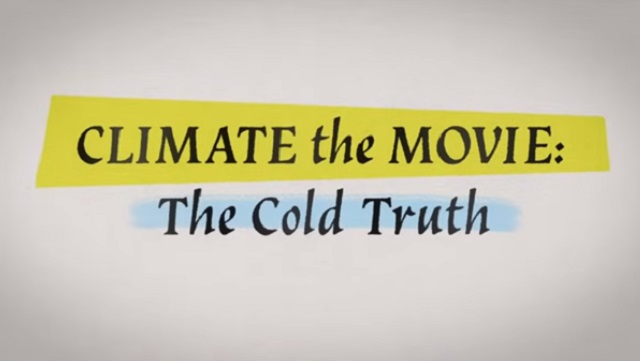
From the Climate Intelligence Foundation (CLINTEL).
Founded in 2019 by emeritus professor of geophysics Guus Berkhout and science journalist Marcel Crok, CLINTEL‘s main objective is to generate knowledge and insight into the extent, nature, causes and consequences of climate change and the climate policy related to it.
From CLINTEL on YouTube
This film exposes the climate alarm as an invented scare without any basis in science. It shows that mainstream studies and official data do not support the claim that we are witnessing an increase in extreme weather events – hurricanes, droughts, heatwaves, wildfires and all the rest. It emphatically counters the claim that current temperatures and levels of atmospheric CO2 are unusually and worryingly high.
The film includes interviews with a number of very prominent scientists, including Professor Steven Koonin (author of ‘Unsettled’, a former provost and vice-president of Caltech), Professor Richard (Dick) Lindzen (formerly professor of meteorology at Harvard and MIT), Professor Will Happer (professor of physics at Princeton), Dr John Clauser (winner of the Nobel prize in Physics in 2022), Professor Nir Shaviv (Racah Institute of Physics), professor Ross McKitrick (University of Guelph), Willie Soon and several others.
The film was written and directed by the British filmmaker Martin Durkin and is the sequel of his excellent 2007 documentary The Great Global Warming Swindle. Tom Nelson, a podcaster who has been deeply examining climate debate issues for the better part of two decades, was the producer of the film.
Follow @ClimateTheMovie and @ClintelOrg for updates.
Climate Intelligence Foundation (CLINTEL) is an independent foundation that reports objectively on climate change and climate policy and aims to be a voice of reason in the often overheated climate debate. CLINTEL was founded in 2019 by emeritus professor of geophysics Guus Berkhout and science journalist Marcel Crok . CLINTEL’s main objective is to generate knowledge and insight into the extent, nature, causes and consequences of climate change and the climate policy related to it. CLINTEL also wants to participate in debates on climate science and policy, as well as in decision-making processes in this regard.
To this end:
- The foundation tries to communicate clearly and transparently to the general public what facts are available about climate change and climate policy and also where facts turn into assumptions and predictions.
- The foundation conducts and encourages a public debate on this matter and carries out investigative journalism work in this area.
- The foundation aims to function as an international meeting place for scientists with different views on climate change and climate policy.
- Will the foundation also conduct or finance scientific research in the field of climate change and climate policy?
- The foundation participates in decision-making procedures regarding the climate, climate communication and climate policy, in particular legislative and regulatory processes, but possibly also legal procedures regarding climate policy of governments, companies or other parties.
CLINTEL wants to take on the role of ‘climate watchdog’, both in the field of climate science and climate policy.
CLINTEL was made possible in part by a start-up donation from real estate entrepreneur Niek Sandmann. The foundation is very grateful to him for this. Several people have already indicated that they would also like to contribute financially to the foundation. This can also be done anonymously if desired. You can support us by becoming a Friend of CLINTEL or making a one-time donation .
The foundation strives for as few overhead costs as possible, so that almost all resources can be spent on investigative journalism, scientific research and public information. CLINTEL will work on an extensive national network of “friends” and “ambassadors”. To this end, meetings ( CLINTEL Chambers ) will be organized throughout the country . CLINTEL also has a youth organization, Young CLINTEL .
CLINTEL is located in Amsterdam and can be reached via [email protected].
Links
Channel details
| www.youtube.com/@clintel628 |
Censorship Industrial Complex
Misinformed: Hyped heat deaths and ignored cold deaths
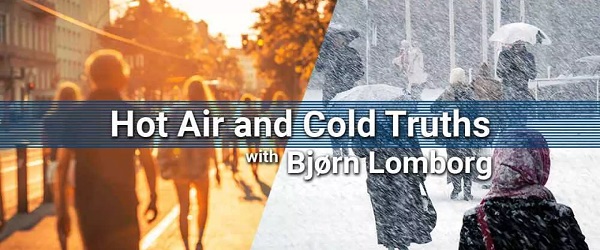
From the Fraser Institute
Whenever there’s a heatwave—whether at home or abroad—the media loves to splash it. Politicians and campaigners then jump in to warn that climate change is at fault, and urge us to cut carbon emissions. But they are only telling us one-tenth of the story and giving terrible advice.
Global warming indeed causes more heat waves, and these raise the risk that more people die because of heat. That much is true. But higher temperatures also cause a reduction in cold temperatures, reducing the risk that people die from the cold. Almost everywhere in the world—not just Canada—cold kills 5-15 times more people than heat.
Heat gets a lot of attention both because of its obvious link to climate change and because it is immediately visible—meaning it is photogenic for the media. Heat kills within a few days of temperatures getting too high, because it alters the fluid and electrolytic balance in weaker, often older people.
Cold, on the other hand, slowly kills over months. At low temperatures, the body constricts outer blood vessels to conserve heat, driving up blood pressure. High blood pressure is the world’s leading killer, causing 19 per cent of all deaths.
Depending on where we live, taking into account infrastructure like heating and cooling, along with vehicles and clothes to keep us comfortable, there is a temperature at which deaths will be at a minimum. If it gets warmer or colder, more people will die.
A recent Lancet study shows that if we count all the additional deaths from too-hot temperatures globally, heat kills nearly half a million people each year. But too-cold temperatures are more than nine-times deadlier, killing over 4.5 million people.
In Canada, unsurprisingly, cold is even deadlier, killing more than 12 times more than heat. Each year, about 1,400 Canadians die from heat, but more than 17,000 die because of the cold.
Every time there is a heatwave, climate activists will tell you that global warming is an existential problem and we need to switch to renewables. And yes, the terrible heat dome in BC in June 2021 tragically killed 450-600 people and was likely made worse by global warming. But in that same year, the cold in BC killed 2,500 people, yet these deaths made few headlines.
Moreover, the advice from climate activists—that we should hasten the switch away from fossil fuels—is deeply problematic. Switching to renewables drives up energy prices. How do people better survive heat? With air conditioning. Over the last century, despite the temperature increasing, the US saw a remarkable drop in heat deaths because of more air conditioning. Making electricity for air conditioning more expensive means especially poorer people cannot afford to stay cool, and more people die.
Likewise, access to more heating has made our homes less deadly in winter, driving down cold mortality over the 20th century. One study shows that cheap gas heating in the late 2000s saved 12,500 Americans from dying of cold each year. Making heating more expensive will consign at least 12,500 people to die each year because they can no longer afford to keep warm.
One thing climate campaigners never admit is that current temperature rises actually make fewer people die overall from heat and cold. While rising temperatures drive more heat deaths, they also reduce the number of cold deaths — and because cold deaths are much more prevalent, this reduces total deaths significantly.
The only global estimate shows that in the last two decades, rising temperatures have increased heat deaths by 0.21 percentage points but reduced cold deaths by 0.51 percentage points. Rising temperatures have reduced net global death by 0.3 per cent, meaning some 166,000 deaths have been avoided. The researchers haven’t done the numbers for Canada alone, but combined with the US, increased temperatures have caused an extra 5,000 heat deaths annually, but reduced the number of cold deaths by 14,000.

If temperatures keep rising, cold deaths can only be reduced so much. Eventually, of course, total deaths will increase again. But a new near-global Nature study shows that, looking only at the impact of climate change, the number of total dead from heat and cold will stay lower than today almost up to a 3oC temperature increase, which is more than currently expected by the end of the century.
People claim that we will soon be in a world that is literally too hot and humid to live in, using something called the “wet bulb” temperature. But under realistic assumptions, the actual number of people who by century’s end will live in unlivable circumstances is still zero.
The incessant focus on tens or hundreds of people dying in for instance Indian heatwaves makes us forget that even in India, cold is a much bigger challenge. While heat kills 89,000 people each year, cold kills seven times more at 632,000 every year. Yet, you would never know with the current climate information we get.
Hearing only the alarmist side of heat and cold deaths not only scares people—especially younger generations—but points us toward ineffective policies that drive up energy costs and let more people die from lack of adequate protection against both heat and cold.
Bjørn Lomborg
Bjorn Lomborg
We need to get smart about climate
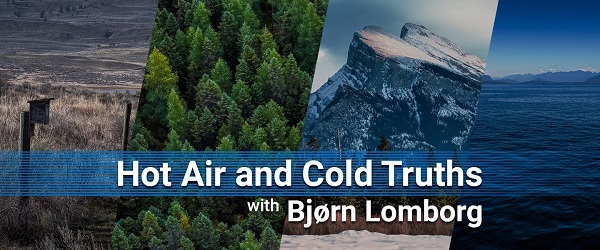
From the Fraser Institute
APPEARED IN THE FINANCIAL POST
By: Bjørn Lomborg
Canada’s chattering classes claim that climate change is one of the country’s pre-eminent threats. This is extraordinary. Canada is experiencing a productivity slowdown, the worst decline in living standards in 40 years, and growth rates that lag most developed economies. Geopolitical threats loom, the healthcare system is under stress and education is faltering. Yet the federal government has spent or committed more than $160 billion on climate initiatives since 2015, and is funneling $5.3 billion to help poor countries respond to climate change.
Like most nations, Canada faces tough decisions in coming decades. Resources spent on climate will not be not available for health, education, security or boosting prosperity.
Global warming is a real problem. Science has shown quite clearly that more CO₂, mostly from fossil fuel use, increases global temperatures. Climate economics has shown how this brings both problems and benefits (for instance, more deaths caused by heat, fewer by cold) but, overall, more problems than benefits. More CO₂ means higher social costs, so reducing CO₂ does have real benefits.
But climate policies also have costs. They force families and businesses to use more expensive energy, which slows economic growth. You might have heard otherwise but if the new ways really were cheaper, no regulations or mandates would be needed.
If climate change were treated like any other political issue, we would openly recognize these trade-offs and try to balance them to get the most climate benefits for the least cost, recognizing that climate policies need to compete against many other worthy policies.
But in two important ways the climate conversation has gone off the rails.
First, people say — wrongly — that global warming is an existential challenge, risking the end of mankind. Of course, if the world is about to end, it follows that any spending is justified. After all, if a world-obliterating meteor is hurtling towards us, we don’t ask about the costs of avoiding it.
Second, it is also often claimed — somewhat contradictorily — that the green transition will make energy cheaper, societies safer and everyone richer. In this “rainbows and unicorns” scenario, there are no trade-offs and we can afford climate policy and everything else.
Both claims are repeated ad nauseam by Canadian politicians and activists and spread by media hooked on selling climate catastrophes and green utopias. But both are quite untrue.
That is why I’m writing this series. I will outline how many of the most sensationalist, scary climate stories are misleading or wrong and ignore the best climate science. Being data-driven, I will show you this with the best peer-reviewed data and numbers.

So: Is climate change the world’s all-encompassing problem today? One way to test this is to look at extreme weather, which we constantly hear is having an ever-larger impact on our societies. But the data paint a very different picture (see chart).
We have good evidence for the number of people killed in climate-related disasters, i.e., floods, storms, droughts, and fires. (We’ll look at temperature deaths next week.) A century ago, such disasters routinely killed hundreds of thousands, even millions of people in a single disaster. On average, about half a million people a year died in such disasters. Since then, the death toll has declined precipitously. The last decade saw an average of fewer than 10,000 deaths per year, a decline of more than 97 per cent.
Of course, over the past century the world’s population has quadrupled, which means the risk per person has dropped even more, and is now down by more than 99 per cent. Why this great success story? Because richer, more resilient societies with better technology and forecasting are much better able to protect their citizens. That doesn’t mean there is no climate signal at all, but rather that technology and adaptation entirely swamp its impact.
In the same way, climate’s impact on overall human welfare is also quite small. In proportion to the total economy, the cost of climate-related disasters has been declining since 1990. Looking to the future, the best estimates of the total economic impact of climate change come from two major meta-studies by two of the most respected climate economists. Each shows that end-of-century GDP, instead of being 350 per cent higher, will only be 335 per cent higher.
“Only” becoming 335 per cent richer is a problem, to be sure, but not an existential threat. Despite that, as this series will show, many of the most draconian climate policy proposals so casually tossed around these days will do little to fix climate but could dramatically lower future growth and the opportunities of future generations.
We need to get smart on climate. This series will map out how.
-
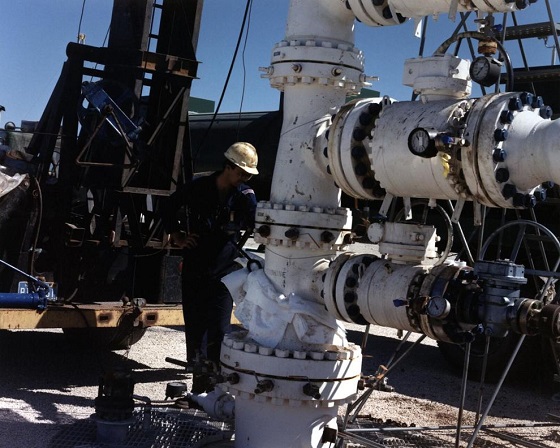
 Energy2 days ago
Energy2 days agoEnergy group urges Trump administration to restock oil reserves
-

 Business2 days ago
Business2 days agoTrump eyes end of capital gains tax in 2025
-

 Bruce Dowbiggin2 days ago
Bruce Dowbiggin2 days agoBettman Gives Rogers Keys To The Empire. Nothing Will Change
-
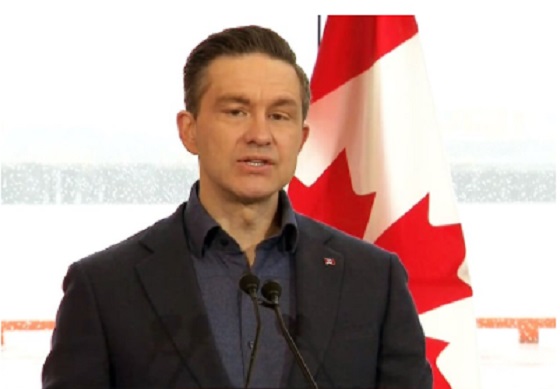
 2025 Federal Election2 days ago
2025 Federal Election2 days agoPoilievre Will Bring in ‘One and Done’ Resource Approvals, and Ten Specific Projects Including LNG Canada Phase II
-

 conflict1 day ago
conflict1 day agoZelensky Alleges Chinese Nationals Fighting for Russia, Calls for Global Response
-

 2025 Federal Election1 day ago
2025 Federal Election1 day agoHarper Endorses Poilievre at Historic Edmonton Rally: “This Crisis Was Made in Canada”
-

 2025 Federal Election1 day ago
2025 Federal Election1 day agoMark Carney’s radical left-wing, globalist record proves he is Justin Trudeau 2.0
-
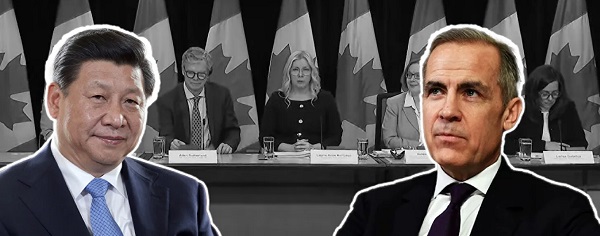
 2025 Federal Election2 days ago
2025 Federal Election2 days agoElection Security Briefing Confirms CCP-Linked Operation Boosted Carney










